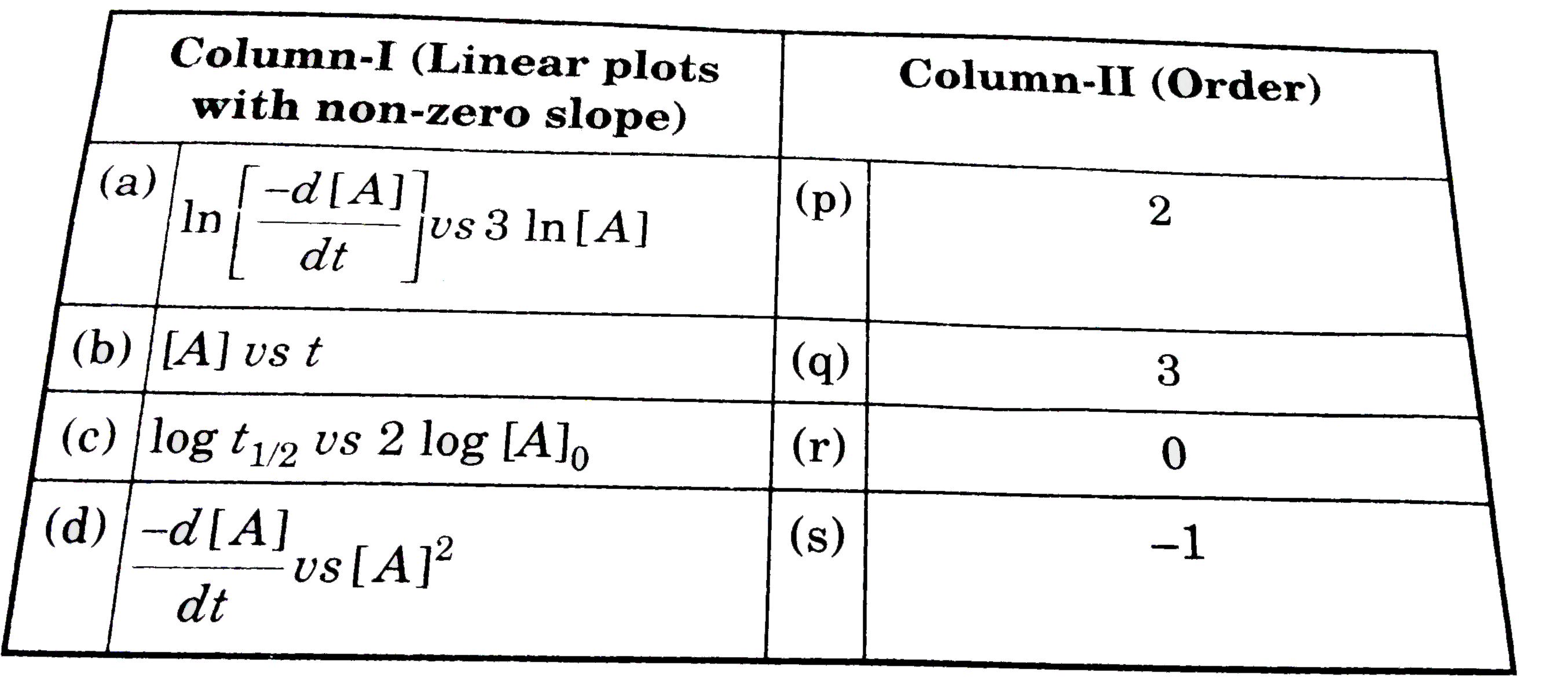If concentration of reactants is made x times the rate constant k becomesSolution in Telugu
ek/x
k/x
unchanged
x/k
The correct Answer is:C
Step by step video, text & image solution for If concentration of reactants is made x times the rate constant k becomes by Chemistry experts to help you in doubts & scoring excellent marks in Class 12 exams.
Topper's Solved these Questions
- BOOK - AAKASH SERIESCHAPTER - CHEMICAL KINETICSEXERCISE - Objective Exercise - 293videos
CHEMICAL KINETICS
- BOOK - AAKASH SERIESCHAPTER - CHEMICAL KINETICSEXERCISE - Objective Exercise - 3 (Previous NEET/AIPMT Questions)32videos
CHEMICAL KINETICS
- BOOK - AAKASH SERIESCHAPTER - CHEMICAL KINETICSEXERCISE - Subjective Exercise-4 (Numerical Problems)7videos
CHEMICAL KINETICS
- BOOK - AAKASH SERIESCHAPTER - CHEMICAL KINETCSEXERCISE - EXERCISE - 3.245videos
CHEMICAL KINETCS
- BOOK - AAKASH SERIESCHAPTER - CHEMICAL THERMODYNAMICSEXERCISE - Additional Practice Exercise54videos
CHEMICAL THERMODYNAMICS
Similar Questions
Consider the following reaction N2(g)+3H2(g)→2NH3(g). The rate of the reaction in terms in terms of N2 at T(k) is −d[N2]dt=0.02 mole lit−1sec−1. What is the value of −d[H2]dt (in mole lit−1sec−1) at the same temperature?
11:26View SolutionFor a first order reaction A→B the reaction rate at reactant concetration of 0.01 M is found to be 2.0×10−5mol L−1s−1. The half life period of the reactionis
01:16View SolutionThe initial concentration of [A] = 0.3 mol/lit. The concentration after 2.3 min is 0.15 moles/lit. What is the value of rate constant.
00:49View SolutionDiscuss on the kinetic spontaneity of a chemical reaction. Is a slow reaction spontaneous? Why?
01:27View SolutionWhich among the following is not an exact differential?
02:24View Solution
[A] = reactant concentration at time 't', k = rate constantView SolutionIf concentration of reactant is increased by 2 times then K becomes :-
View SolutionThe concentration of reactants is increased by x, then equilibrium constant K becomes
View SolutionIf concentration of reactants is increased by 'x' then K becomes
01:49View SolutionC_(o) =initial concentration of the reactant C_(t) = concentration of the reactant at time t, k=rate constant of the reaction. Then the equation applicable for a first order reaction is
01:24View SolutionThe rate of the reaction X rarrY becomes 8 times when the concentration of the reactant 'X' is doubled . The rate law of the reaction is ............
02:23View SolutionThe rate of the reaction X→Y becomes 8 times when the concentration of the reactant 'X' is doubled . The rate law of the reaction is ………..
View SolutionIf concentration of reactants is increased by X the rate constant k becomes
02:23View SolutionIf concentration of reactants is made x times the rate constant k becomes
02:11View SolutionIn a reversible reaction, if the concentration of reactants are double, the equilibrium constant K will be x times the initial equilibrium constant. x will be equal to
01:47View SolutionIf concentration of reactants is increased by ‘X’, the rate constant K becomes:
01:47View Solution

